I do not concern myself with gods and spirits either good or evil nor do I serve any
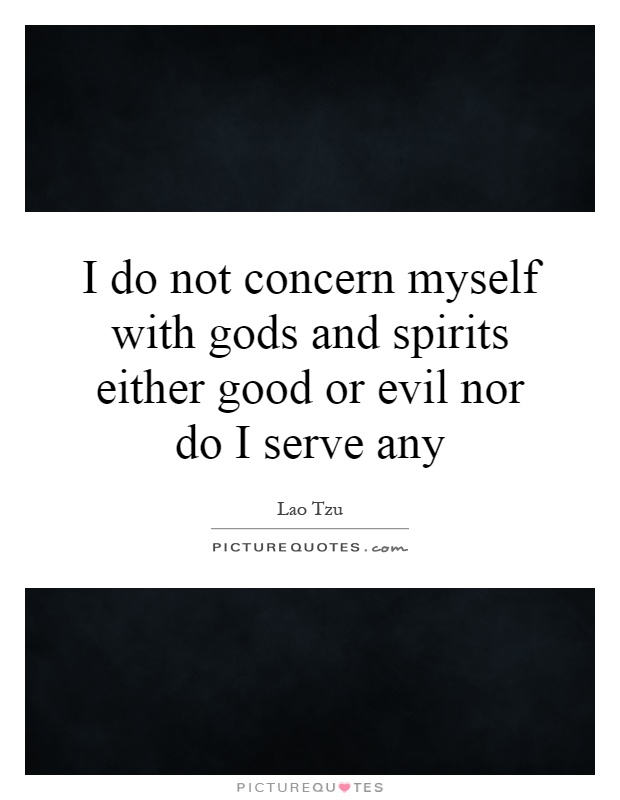
I do not concern myself with gods and spirits either good or evil nor do I serve any
In the context of Lao Tzu and his teachings in the Tao Te Ching, the statement "I do not concern myself with gods and spirits either good or evil nor do I serve any" reflects the fundamental principle of non-duality and the rejection of external authorities in the pursuit of spiritual enlightenment.Lao Tzu, the legendary Chinese philosopher and founder of Taoism, emphasized the importance of living in harmony with the Tao, or the Way, which is the natural order of the universe. According to Lao Tzu, the Tao is beyond human comprehension and cannot be fully understood or controlled by the human mind. Therefore, he advocated for a life of simplicity, humility, and detachment from worldly desires in order to align oneself with the Tao and achieve inner peace and spiritual fulfillment.
In the Tao Te Ching, Lao Tzu criticizes the worship of gods and spirits as distractions from the true path of self-realization. He believed that the belief in external deities and supernatural forces only serves to create division, fear, and superstition among people, leading them away from their true nature and the source of all existence. By rejecting the worship of gods and spirits, Lao Tzu encouraged his followers to look within themselves and cultivate their own inner wisdom and intuition.
Furthermore, Lao Tzu rejected the idea of serving any external authority, whether it be a god, a king, or a religious institution. He believed that true freedom and autonomy can only be achieved by breaking free from the chains of external control and following one's own inner guidance. By serving no one but oneself, one can cultivate self-reliance, self-discipline, and self-mastery, leading to a life of true fulfillment and contentment.

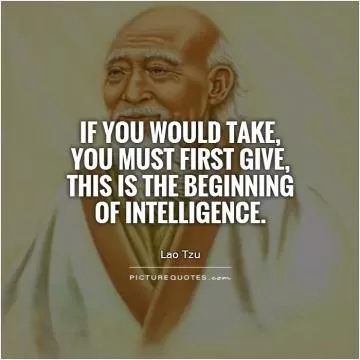
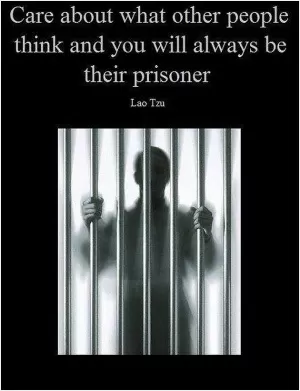


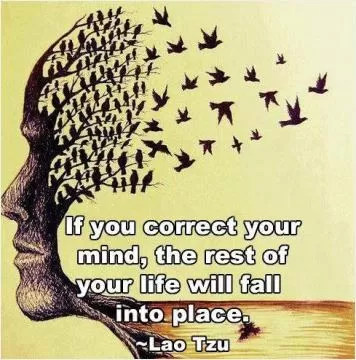
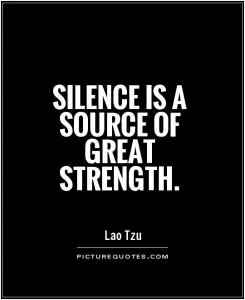



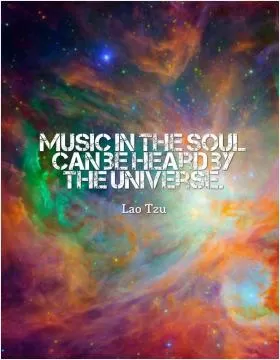

 Friendship Quotes
Friendship Quotes Love Quotes
Love Quotes Life Quotes
Life Quotes Funny Quotes
Funny Quotes Motivational Quotes
Motivational Quotes Inspirational Quotes
Inspirational Quotes